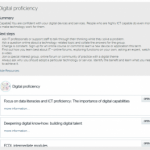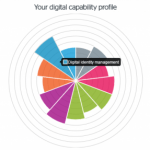 UCL participated in the 2017 Jisc Digital Student Tracker Survey as part of a consortium with the Bloomsbury Learning Environment (BLE) made up of SOAS, Birkbeck, LSHTM and RVC. 74 UK institutions ran the tracker with their students collecting 22,593 student responses, while 10 international universities collected an additional 5,000 student responses
UCL participated in the 2017 Jisc Digital Student Tracker Survey as part of a consortium with the Bloomsbury Learning Environment (BLE) made up of SOAS, Birkbeck, LSHTM and RVC. 74 UK institutions ran the tracker with their students collecting 22,593 student responses, while 10 international universities collected an additional 5,000 student responses
We were the only consortium to participate in the survey and had come together as a result of institutional surveys, such as the National Student Survey, meaning that the time available to run it independently was short (a month) and we therefore felt that our individual sample sizes would be too small. We treated the survey as a pilot and advertised a link to it on each College’s Moodle landing page as well as some promotion via social media and the Student Unions. The survey generated 330 responses, which given our constraints was much more than we expected.
The survey comprises five broad areas: Digital access, digital support and digital learning. Most questions were quantitatively recorded, but there were four open questions, which produced qualitative data. We were also able to choose two additional questions to the survey and we selected e-assessment, since that was a previous shared enhancement project (see www.bloomsbury.ac.uk/assessment) and Moodle, since all members of the consortium use the platform for their Virtual Learning Environment (VLE).
Once the survey closed and we had access to the benchmarking report we ran a workshop for representatives from each of the Colleges in July 2017 whereby the results corresponding to the survey’s open questions were analysed in institutional groups, which facilitated interesting discussions over commonalities and potential implications.
Sarah Sherman, the BLE Manager and myself, have been working to produce a report which will examine our collective responses to the survey in comparison with the national survey population with a recommendation that individual Colleges independently analyse their own results in more detail. For confidentiality, each College will be presented with a version of this document, which contains the relevant data for their institution only and not the complete BLE data set. A disadvantage of the consortium approach was that we were not able to benchmark individual Colleges to the survey population as the resources would not allow for this. In the future, the participating Colleges may wish to run the survey individually rather than as part of a collective as it was not possible to conduct deep analysis with this data set.

Although the sample size collected by the Bloomsbury Colleges was small and not statistically viable, there is much we can extract and learn from this exercise. For the most part, our collective responses tended to fall within the margins set by the national survey population, which means we are all at a similar phase in our student’s digital capability and development.
You will have to wait for the full report for more information on the UCL data collected but just to whet the appetite you can see the key findings from Jisc in this 2 page report: Student digital experience tracker at a glance .
Finally, you can see this collection of case studies, which features the Bloomsbury Colleges consortium, here.
Please get in touch with me if you would like to get involved (moira.wright @ ucl.ac.uk)
Sarah Sherman and Moira Wright
Jisc/ NUS student digital experience benchmarking tool
Jisc guide to enhancing the digital student experience: a strategic approach
 Close
Close









